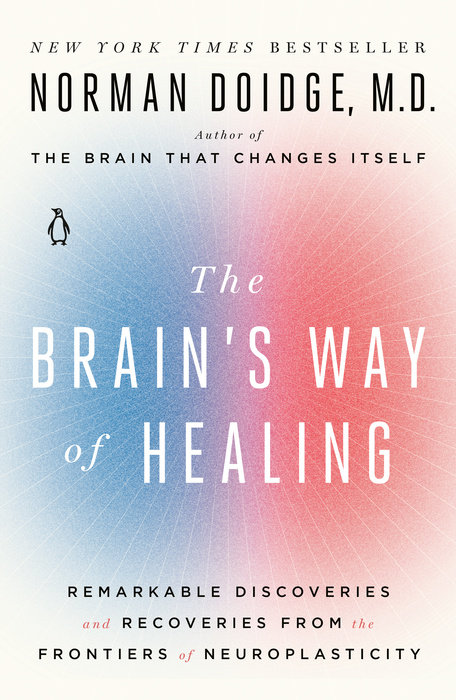TOPIC
Disabled Well-Being & emotional health and well beingbooks
Below are the best books we could find on Disabled Well-Being and emotional health and well being.
FILTER
CLEAR ALL
BY TOPIC
BY TEACHER
BY TYPE
FILTER

TOPIC
- Social Justice (10)
- Identity (8)
- Empowerment (8)
- Grit (8)
- Managing Energy (7)
- Offering Support to Others (7)
- Adaptability (7)
- Neurodiversity (7)
- Productivity (7)
- Autism (7)
- Activism/Service (7)
- Social Presence (7)
- Emotional and Mental Health (6)
- Belonging (6)
- Social Responsibility (6)
- Child’s Autism (6)
- Veteran Well-Being (5)
- Life-Altering Injury (5)
- Speaking Your Truth (5)
- Body Image (5)
- Body Positivity (5)
- Play (5)
- Self-Reliance (5)
- Intimacy (5)
- Life Challenges (5)
- Courage (5)
- Athlete Well-Being (4)
- Mind-Body Connection (4)
- Sexual Health (4)
- Trauma Healing (4)
- LGBTQIA Well-Being (4)
- Sexuality (4)
- Motivation (4)
- Self-Care (4)
- Child’s ADD/ADHD (4)
- Children’s Well-Being (4)
- Creative Well-Being (3)
- Connection (3)
- Physical Health (3)
- Access to Education (3)
- Black Well-Being (3)
- BIPOC Well-Being (3)
- LGBTQIA Sexuality (3)
- ADD/ADHD (3)
- Grief (3)
- Depression (3)
- Communication Skills (3)
- Young Adult Well-Being (2)
- Building Culture (2)
- Family Acceptance (2)
- Learning Styles (2)
- Problem Solving (2)
- Self-Acceptance (2)
- Motherhood (2)
- Positive Thinking (2)
- Perception (2)
- Racism (2)
- Fellowship and Community (2)
- Family Dynamics (2)
- Indigenous Well-Being (2)
- Brain Health (2)
- Hope (2)
- Goal Setting (2)
- Habits of Mind (2)
- Environmental Justice (2)
- Trauma (2)
- Stress Management (2)
- Social Anxiety (2)
- Positive Self-Talk (2)
- Sex (2)
- Self-Esteem (2)
- PTSD (2)
- Human Potential (2)
- Fear (2)
- Chronic Health Conditions (2)
- Anxiety (2)
- Anger (2)
- Race and Gender (1)
- Caregiver Well-Being (1)
- Asking for Help (1)
- Fatigue (1)
- Raising Nonbinary Children (1)
- Transgender Well-Being (1)
- Emotional Labor (1)
- Identity Shifts (1)
- Imposter Syndrome (1)
- Romantic Relationships (1)
- Military to Civilian Re-entry (1)
- Embodiment (1)
- Cross-Cultural Dynamics (1)
- Relationship with Time (1)
- Acceptance (1)
- Women’s Well-Being (1)
- Self-Worth (1)
- Emotional Intelligence (EQ) (1)
- Interdependence (1)
- Storytelling (1)
- Self-Love (1)
- Honoring Emotion (1)
- Youth Activism (1)
- Women’s Rights (1)
- Authenticity (1)
- Collective Trauma (1)
- Somatic Experiencing (1)
- Positive Psychology (1)
- Neuroplasticity (1)
- Latinx Well-Being (1)
- Leadership (1)
- Optimism (1)
- Female Empowerment (1)
- Work Relationships (1)
- Work Ethic (1)
- Work Challenges (1)
- Friendship (1)
- Shame (1)
- Gender Identity (1)
- Yoga (1)
- Suicide (1)
- Stress (1)
- Social Psychology (1)
- Somatic Practices (1)
- Sexual Assault or Abuse (1)
- Homophobia (1)
- Racial Discrimination (1)
- Post-Traumatic Growth (1)
- Physical Therapy (1)
- Negative Self-Talk (1)
- Near-Death Experience (1)
- Mental Health Challenges (1)
- Memory (1)
- Finding Meaning (1)
- Joy (1)
- Imagination and Creativity (1)
- Healing Approaches (1)
- Gender Discrimination (1)
- Exercise (1)
- Dementia (1)
- Handling a Child’s Illness (1)
- Cognitive Behavioral Therapy (1)
- Chronic Pain (1)
- Child’s Challenging Behavior (1)
- Burnout (1)
- Attachment Theory (1)
- Anger Management (1)
FILTER

TEACHER
EXPLORE RELATED TOPICS
- AAPI Well-Being
- Athlete Well-Being
- BIPOC Well-Being
- Black Well-Being
- Caregiver Well-Being
- Children’s Well-Being
- Creative Well-Being
- Digital Life
- Indigenous Well-Being
- Latinx Well-Being
- LGBTQIA Well-Being
- Living as an Empath
- Longevity
- Men’s Well-Being
- Nonbinary Well-Being
- Transgender Well-Being
- Veteran Well-Being
- Women’s Well-Being
- Young Adult Well-Being
- Illness and Injury
- Well-Being
- Discrimination
- Body Image
- Growth Mindset
EXPLORE RELATED TEACHERS
UP NEXT
Discrimination
Want More Like This?
To continue customizing your FindCenter experience, create an account. It’s free!
Create an account to discover wisdom, save your favorite content, and connect with teachers and seekers.
Get Started
IT’S FREE
If you already have an account, please log in.






